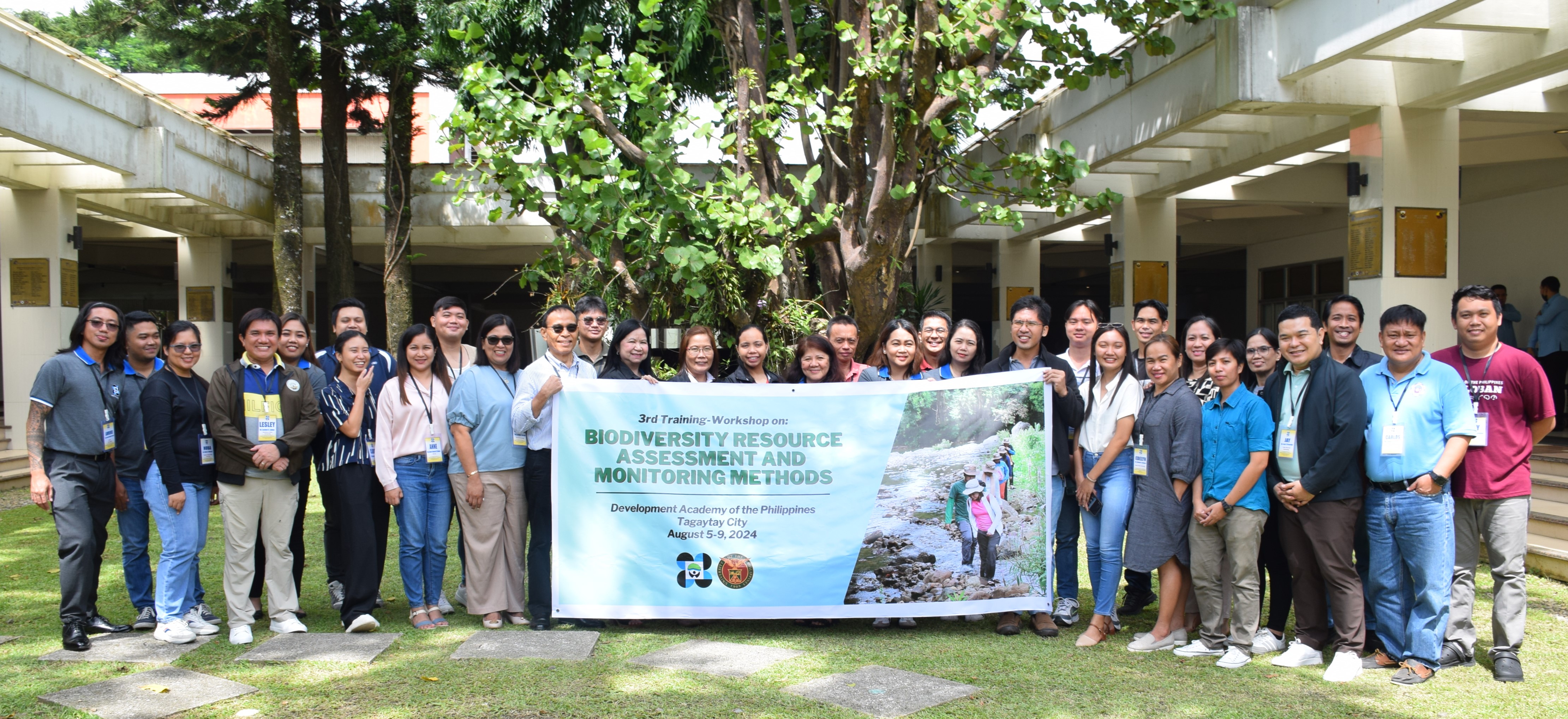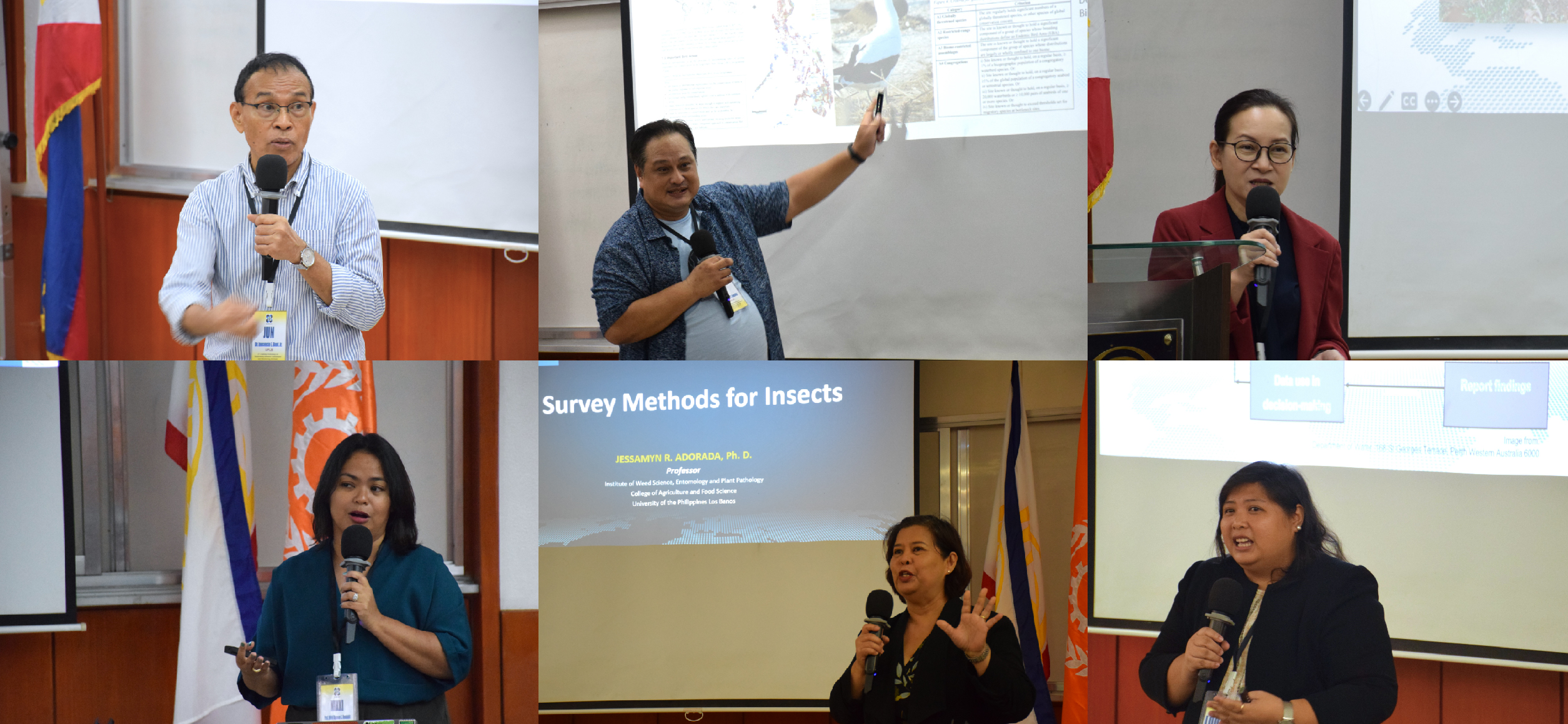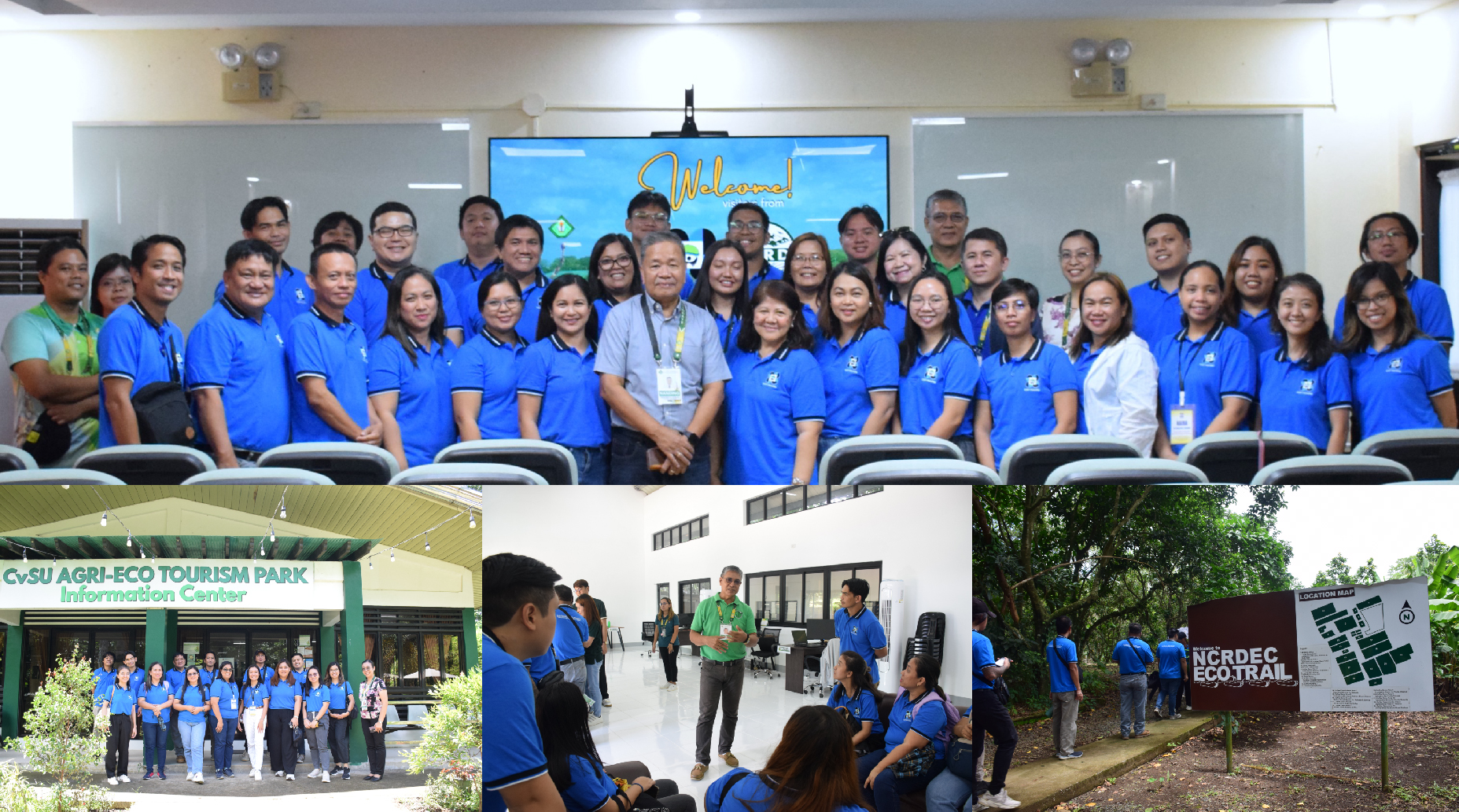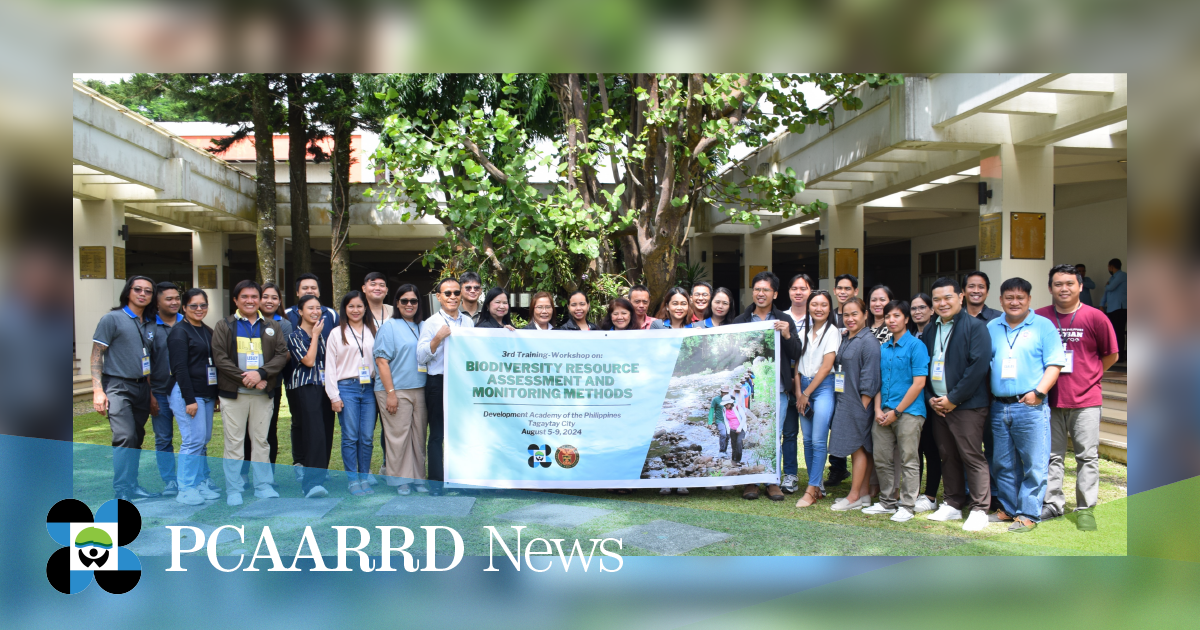
The Philippine Council for Agriculture, Aquatic and Natural Resources Research and Development of the Department of Science and Technology (DOST-PCAARRD), through its Forestry and Environment Research Division (FERD) and Institution Development Division (IDD), held the third installment of the training-workshop, “Biodiversity Resource Assessment and Monitoring Methods” on August 5–9, 2024 at the Development Academy of the Philippines (DAP) Conference Center in Tagaytay City.
Hand-in-hand with the Institute of Biological Sciences of the University of the Philippines Los Baños (IBS-UPLB), the activities included lectures from prominent researchers and experts in the field, a proposal packaging workshop, and a field trip to the Cavite State University (CvSU).
FERD Director Nimfa K. Torreta welcomed the participants and spoke about the expected training outcomes. “Through this training, the crucial significance of conserving our natural resources and biodiversity will hopefully be reaffirmed,” she added.
Dr. Inocencio E. Buot, Jr. shared his expertise on survey methods for grassland and forest ecosystems and spearheaded the workshop and consultation on proposal packaging. Dr. Buot was joined by his colleagues from IBS—Dr. Juan Carlos T. Gonzalez discussed the assessment and monitoring methods for birds; Dr. Anna Pauline de Guia talked about survey methods for mammals; Prof. Nikki Dyanne Realubit discussed and demonstrated survey methods for reptiles and amphibians.

Dr. Jessamyn R. Adorada shared her expertise on survey methods for insects; while Dr. Noel G. Sabino lectured on microbes assessment methods. For the floral species, Dr. Maria Celeste B. Hilario covered strategies for assessing ferns, while Prof. Eugene Lorence R. Logatoc discussed the monitoring of bryophytes.
Dr. Loucel E. Cui of UPLB School of Environmental Science and Management (SESAM) imparted her experiences on survey methods for aquatic ecosystems.

As part of the training objectives, participants were tasked to individually draft a concept proposal based on their expertise and field to be pursued. The resource persons and FERD technical staff reviewed and recommended ways to improve the proposals, particularly their scientific soundness to align with DOST-PCAARRD’s priority programs.
On the fourth day of the training, the group visited the CvSU-Indang Campus, which also served as a benchmarking activity for some of their flagship facilities and units. CvSU President Hernando D. Robles welcomed the participants and gave a background on the university’s efforts to advance their research and extension services in agriculture and other areas.

Participants toured the Agri-Eco Park showcasing technologies, extension work, and business activities that include the Bee Research, Innovation, Trade, and Extension (BRITE) Center. Other facilities visited were the National Coffee Research, Development and Extension Center (NCRDEC), Sugar Palm Research, Information and Trade (SPRINT) Center, and the University Museum.
During the closing program, IDD Director Fezoil Luz C. Decena commended the efforts of the 21 participants from all over the country.
“Your proactive participation in this training-workshops remains essential in capacitating and empowering researchers and individuals who are actively involved in biodiversity conservation and the work it is strengthened with," Dr. Decena stated.
The 21 participants were researchers from the Department of Environment and Natural Resources-Ecosystems Research and Development Bureau (ERDB) and from the 13 state universities and colleges (SUCs): Mariano Marcos State University, Benguet State University, UPLB, Bicol University, Eastern Samar State University, Samar State University, Southern Leyte State University-Hinunangan Campus, Palawan State University, Cebu Technological University-Argao Campus, Cebu Normal University, UP Tacloban, UP Mindanao, and Bukidnon State University.

